We get it. Reading about melting icebergs, wildfires, seas full of plastic and politicians dragging their feet about meaningful action can make recycling your bottles feel pretty futile. But at First Mile we’re big believers that we can all make an impact, small or otherwise.
Climate change is a complex issue but there are some brilliant minds writing about it and we think amongst those books are plenty that inspire, educate and are accessible for the non-expert.
On our Climate Heroes podcast we often ask for book recommendations from our guests. This was the starting point for our top ten environmental books list, alongside some suggestions from our team here in London. We think our final edit has some of the best books on climate change – whether it’s those that educate and inspire or books with practical everyday solutions we can all get involved with.
If you’re motivated by the stories around Earth Day and want to learn more about climate change, or you’re a seasoned climate activist looking to discover some new reading, we hope you’ll find something on our book list. Let us know what you think about our choices.
ONE: Where else can we start but with Greta Thunberg – the perfect example of one person starting small and making a huge difference.
The Climate Book by Greta Thunberg
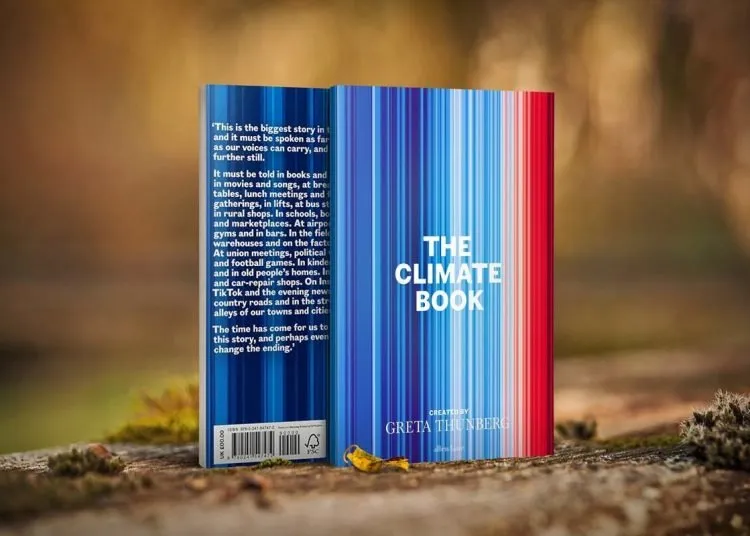
The Climate Book was published in Oct 2022 with the paperback edition released in February this year including updates of the latest research. It’s a compilation of the wisdom of one hundred climate experts, interspersed with the thoughts and commentaries of Greta Thunberg. It’s a book of hope and action – as it says on the cover ‘The Climate Book equips us with knowledge, and gives us hope. Together, it shows, we can do the seemingly impossible. But it has to be us, and it has to be now.’
This book has a ton of fans, not surprisingly for a book from the world’s leading climate activist. It’s full of passion and urgency, but also optimism. The contributors include scientists, economists, journalists and historians and their words arm the reader with the knowledge and understanding to help tackle climate change.
The striking cover of The Climate Book isn’t just a pretty pattern. It features the Climate Stripes, created by Ed Hawkins, a previous guest on our podcast (listen to his episode here) Learn more about the climate stripes here [link to external source or short description]
TWO: Next up, it’s a subject close to our hearts at First Mile - rubbish. And more importantly, what to do with it.
The Rubbish Book by James Piper
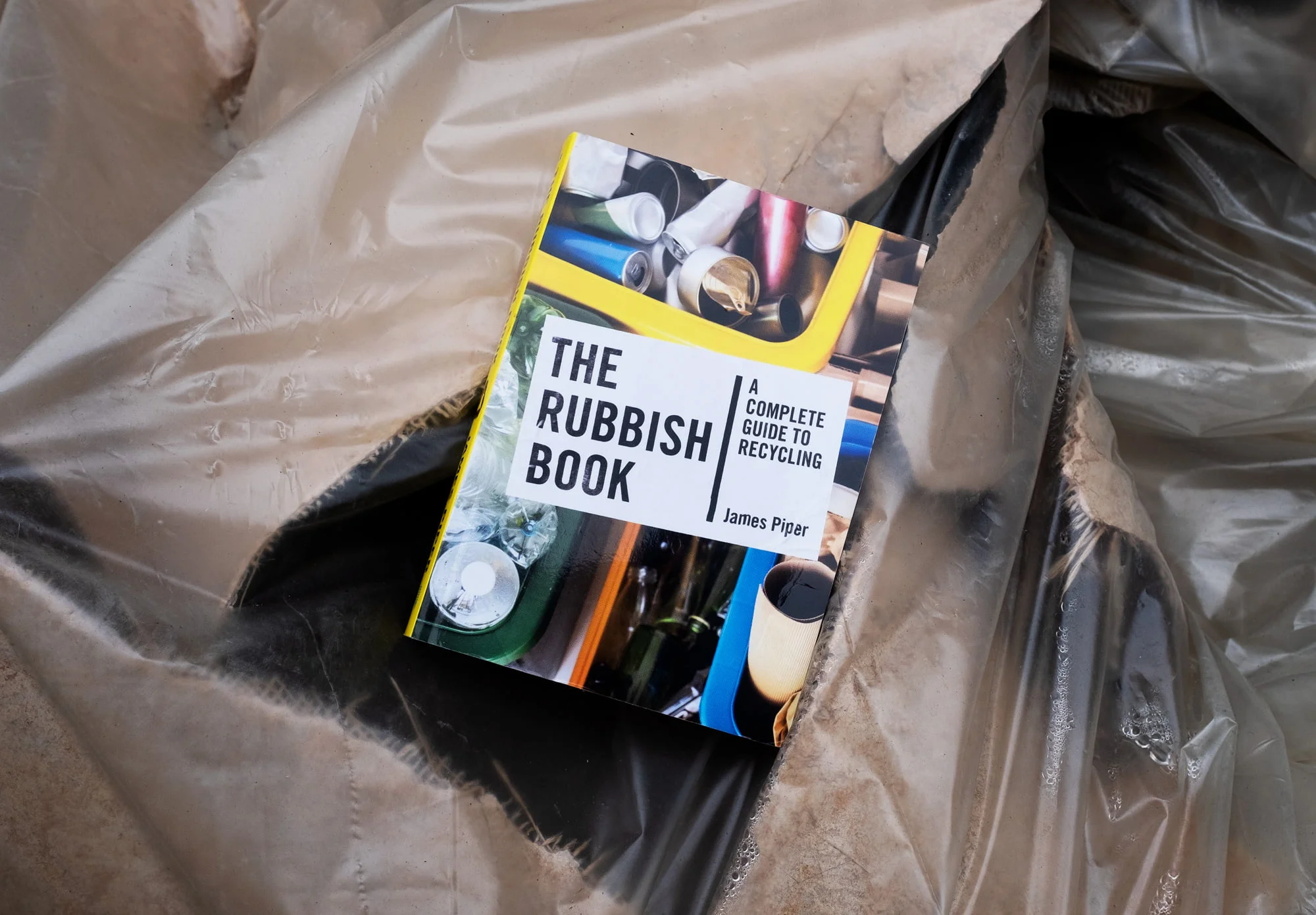
The Rubbish Book by James Piper, an award-winning sustainability expert. If you’ve ever stood in the kitchen gazing at a yoghurt tub and wondering whether it can go in the recycling bin, this book is for you. It will help the most novice of recyclers become an expert. Not just what goes where, but also why some plastics can’t be recycled (helping you avoid them if you can) and what happens to your carefully recycled items. Where do they go when they disappear down the road in the back of council truck or in the case of First Mile collections, a zero emission electric cargo bike.
“Recycling has never been more important – but it has also never been more complicated.
- Where do you put your bottle lids?
- What do you do with labels?
- Can you put recycling in bin bags?”
This book was recommended by Emilie Stephenson (Head of Force for Good at Innocent) on our Climate Heroes podcast, listen to what she said here
THREE: 365 Ways to Save The Planet - Georgina Wilson-Powell
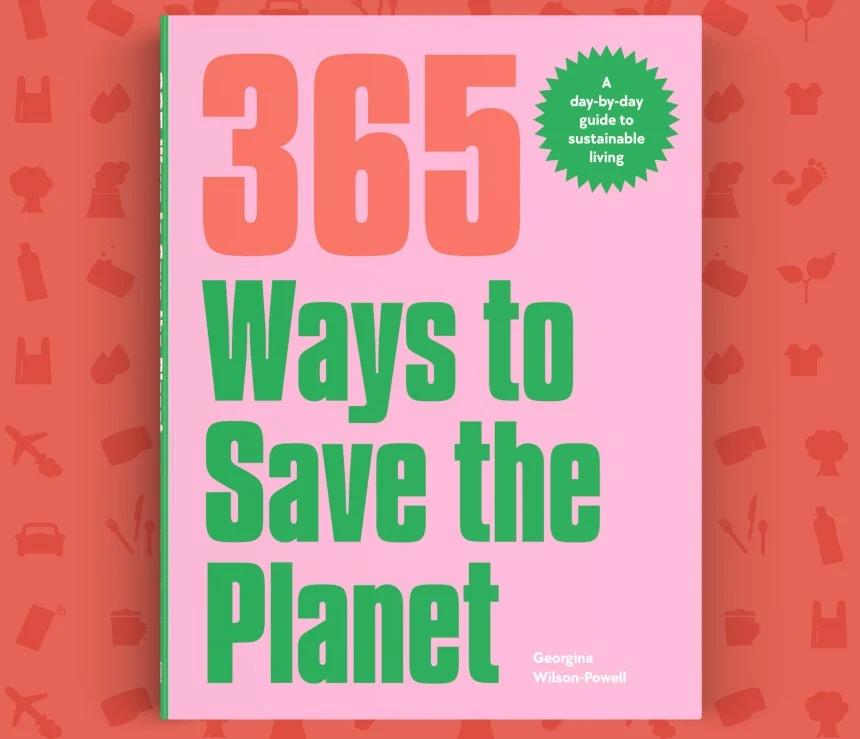
Georgina was a guest on our podcast last year and chatted with First Mile Founder and CEO, Bruce Bratley. She talked about wanting to create a handbook that made it easy for people to make sustainable decisions. When time and money are a factor in your life (and who doesn’t have at least one of those challenges) this book does the legwork and takes out the hard work involved in understanding green living. This is a template for everyday action with low effort and high impact and you can reflect on the difference you’re making with the impact index included in the book.
We love the fact it’s full of achievable actions to help us live a more sustainable life. This Earth Day, if you’re trying to make a start on your path to sustainability and want a full year of daily actions, we recommend this book.
FOUR: Earth MOB
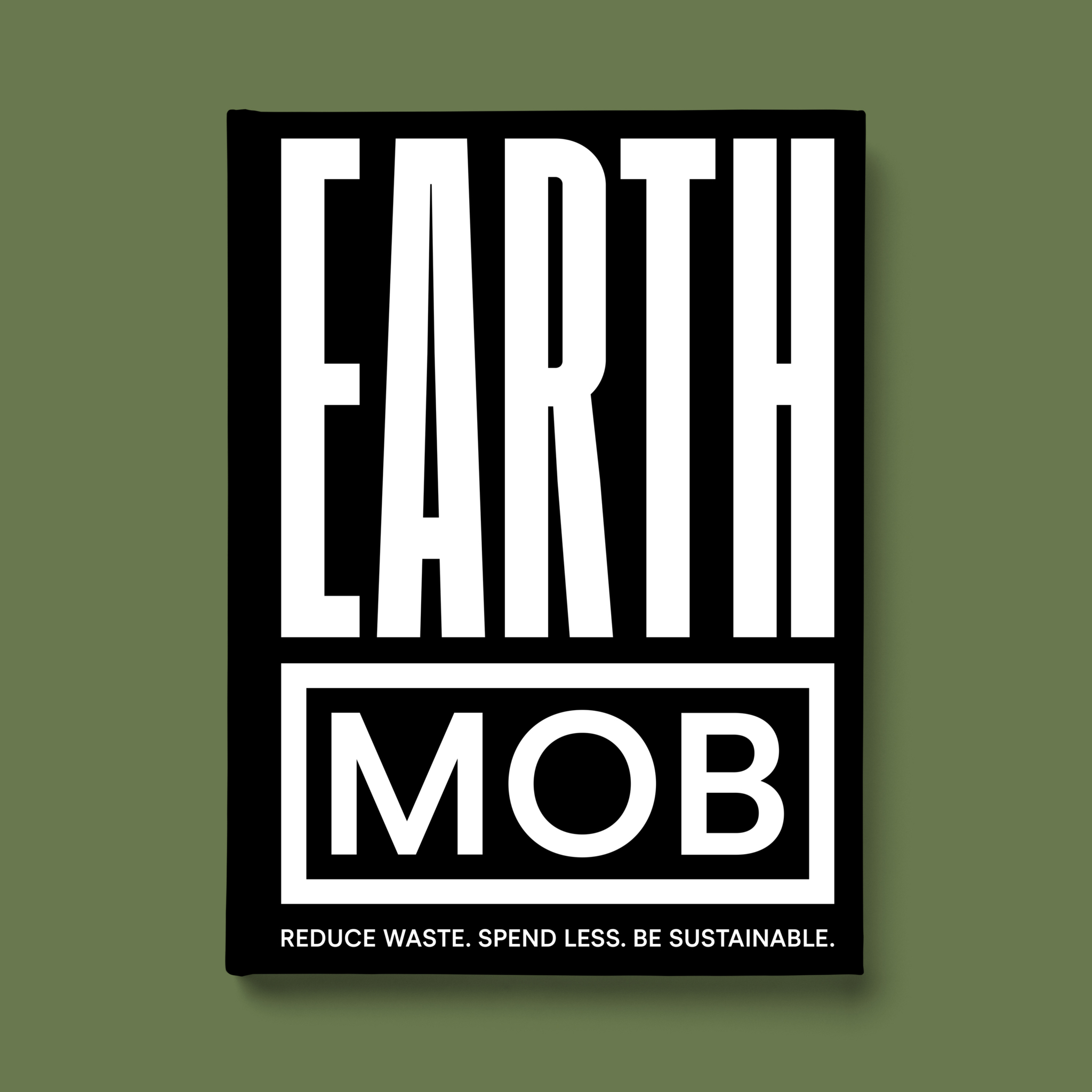
You might know the MOB crew from their cookery books. This book aims to show how you can become greener in the kitchen. Learn about seasonal foods, sustainable food swaps, making the most of leftovers and cutting down on food waste. We know all about food waste at First Mile – did you know that every year, an area larger than China is used to produce food that's never consumed? At least our customers know their waste is being used to make renewable energy. But less waste is even better, and this book will help you achieve that. “Earth MOB is filled with thrifty kitchen tips and delicious recipes to help you save money and cut down on food waste as well as advice on how to shop and store food more efficiently. “
FIVE: Not the End of the World by Hannah Ritchie
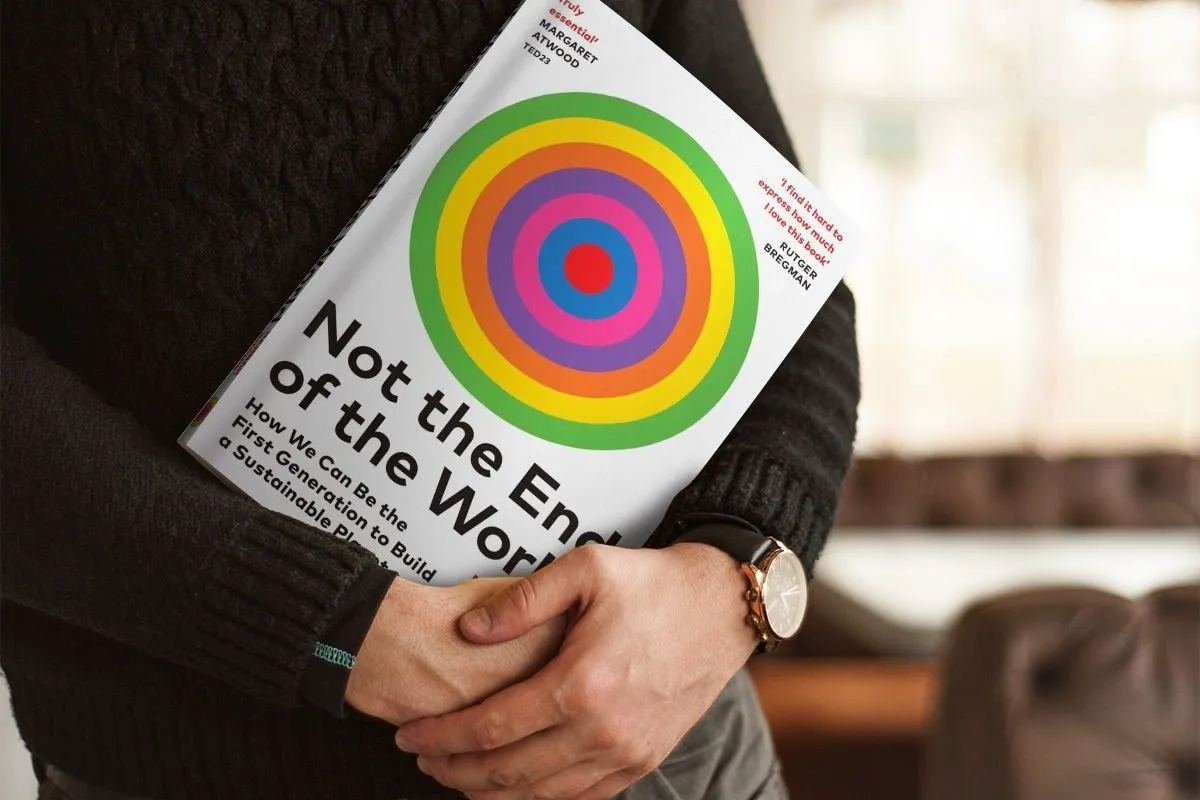
If you like your facts backed up with data, then Not the End of the World is the book for you. A non-sensationalist analysis of the state we’re in and where we’re going when it comes to climate change.
‘Feeling anxious, powerless, or confused about the future of our planet? This book will transform how you see our biggest environmental problems -- and how we can solve them.’
It takes those common statements bandied around the sustainability debate such as ‘eat local’ and looks at the data to see if this is really the best approach (plot spoiler – what you eat is more important than how far it’s travelled)
Rather than focus on the gloomy headlines, data scientist Hannah Ritchie looks at the big data-backed picture. And she proposes that the progress we’ve made so far puts us on a track to achieve sustainability. It’s a hopeful book, and one that acknowledges the problems we face, but proposes solutions.
SIX: No More Rubbish Excuses: How to reduce your waste and why you must do it now. Martin Dorey
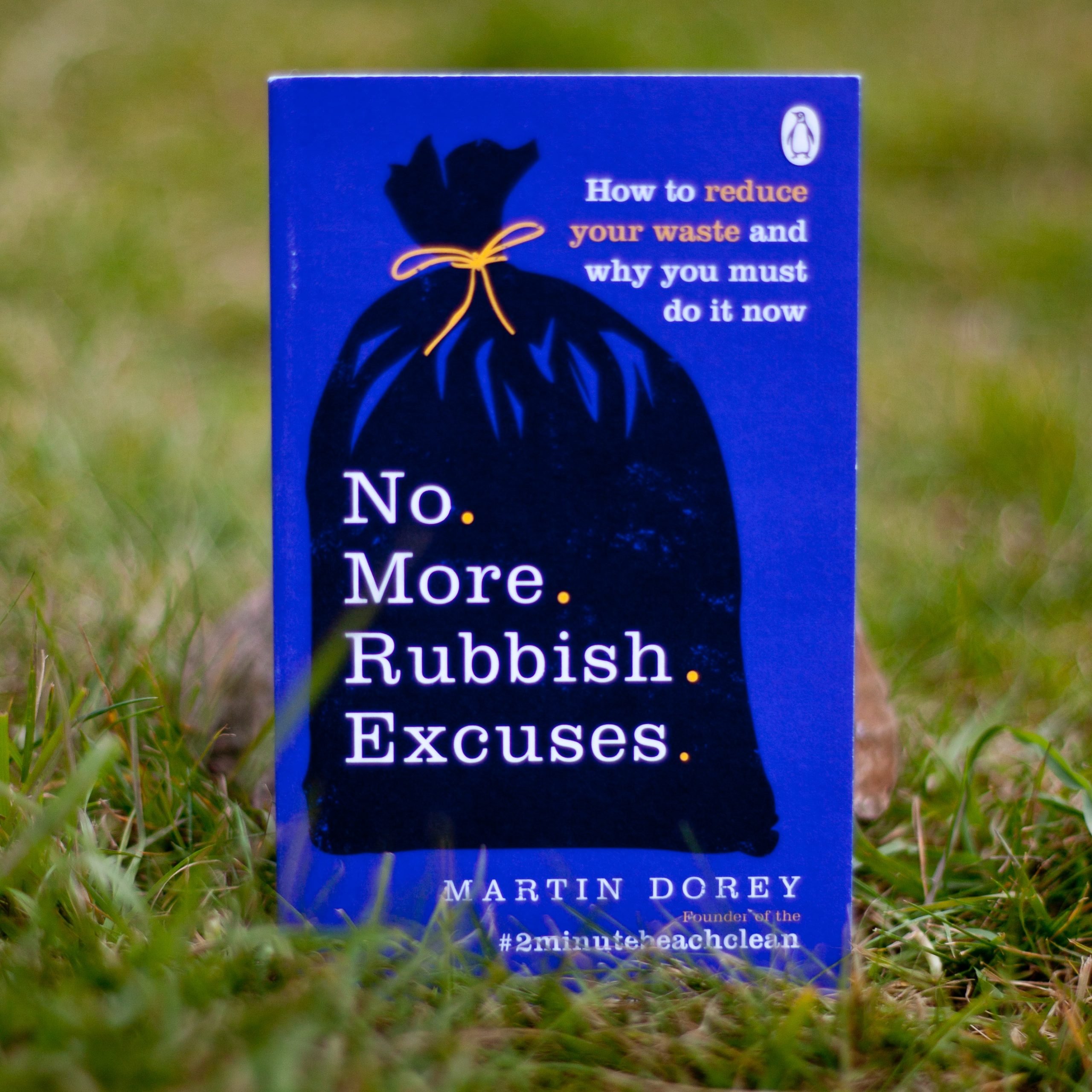
Martin describes himself as a writer, surfer and beach lover and he started the #2minutebeachclean in 2013. He’s taken that idea and applied it to everyday living.
If you’re a well-read climate activist, maybe the suggestions in here are ideas you’re already applying, but for those who want a handbook full of ‘micro-actions’ that only take 2 minutes, No More Rubbish Excuses is a handy reminder of what we can all be doing to cut down our waste.
“We are all responsible for the waste we make, and we can make simple changes to live more planet-friendly lives.”
SEVEN: This Changes Everything: Capitalism vs the Climate - Naomi Klein + How to Change Everything, Naomi Klein
Number 7 is a two for one – both by Naomi Klein.
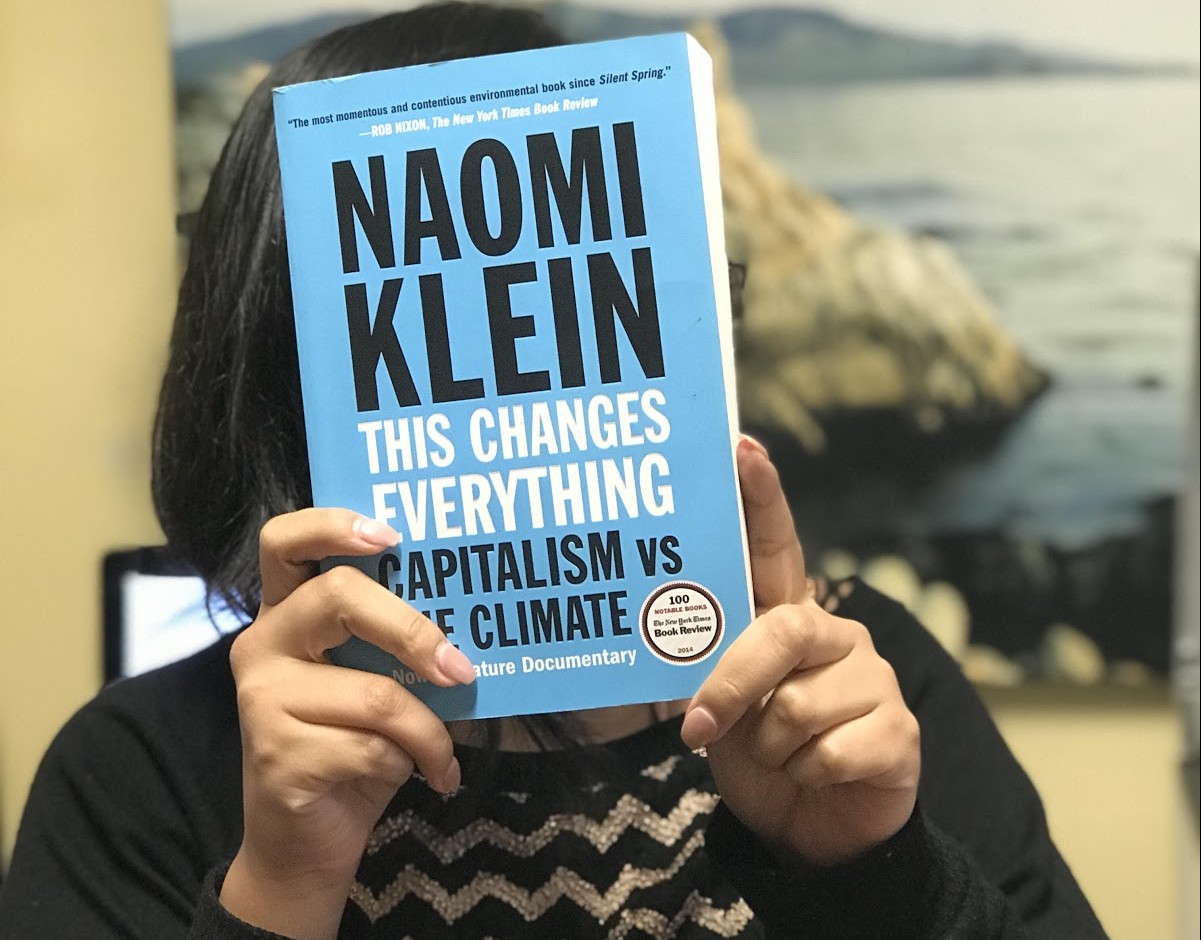
In 2015 she published This Changes Everything: Capitalism vs the Climate which challenged some of the dialogue in place about climate change at the time. “The really inconvenient truth is that it’s not about carbon—it’s about capitalism.”
It focuses on the fact that it is the global economic model putting the strain on the planet, a thinking reinforced in more recently published books. “We have been told the market will save us, when in fact the addiction to profit and growth is digging us in deeper every day. We have been told it’s impossible to get off fossil fuels when in fact we know exactly how to do it—it just requires breaking every rule in the “free-market” playbook: reining in corporate power, rebuilding local economies, and reclaiming our democracies.”
This book was recommended by another Climate Heroes podcast guest, Olio’s Tessa Clarke and whilst it’s the oldest book in our climate change books list, it still has a valid and relevant message so is rightly included. Listen to the podcast with Tessa here
The second book by Klein is How to Change Everything a book aimed at children (age 9-12).
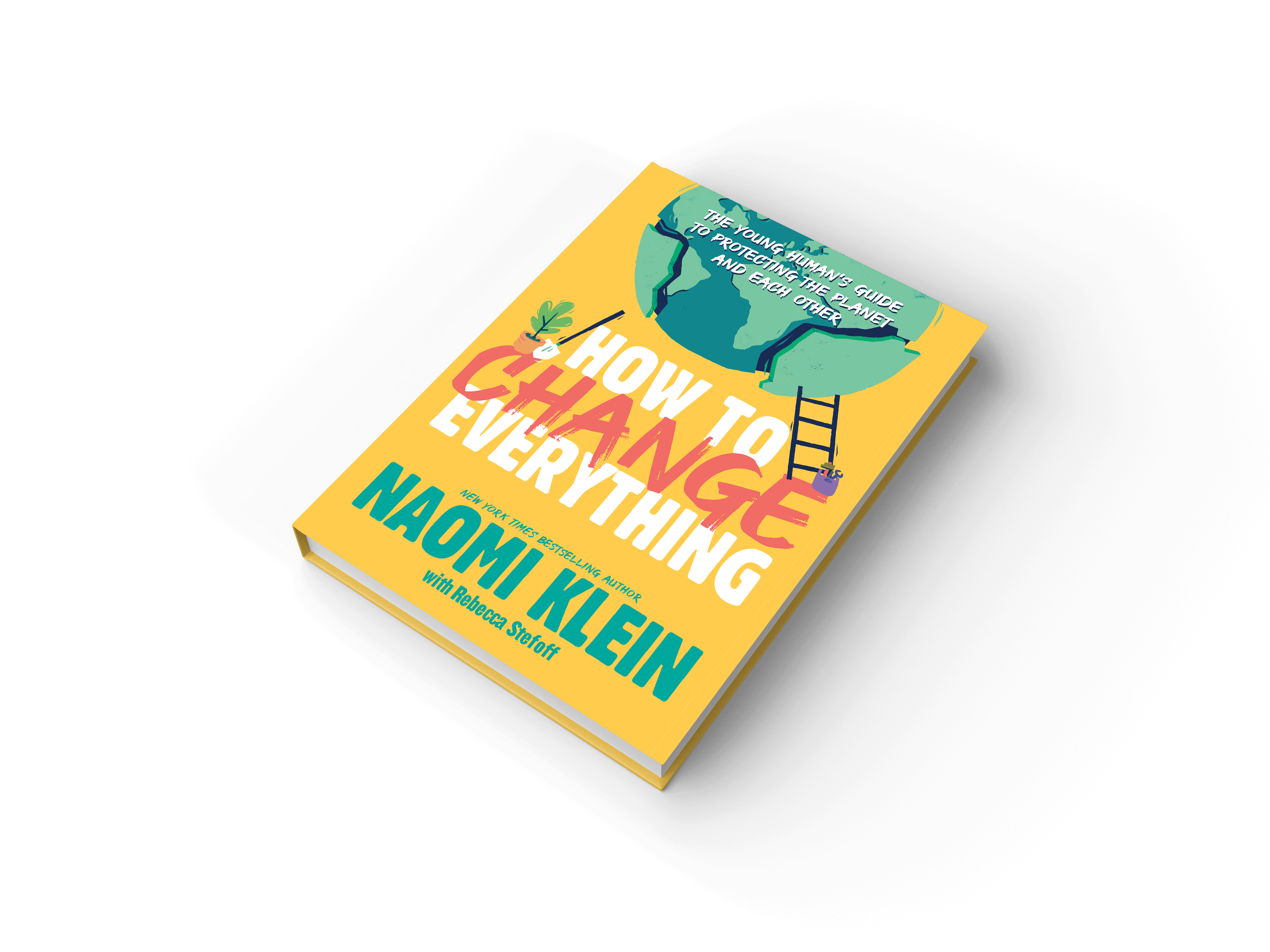
It’s her first book written for this audience and we’re all for getting younger readers engaged in climate activism. If you have a budding Greta Thunberg, this book will empower them with an understanding of how to tackle climate change.
It’s full of inspiring stories of young leaders all over the world, information on climate change, and tools that young people need to join the fight to protect and reshape the planet they will inherit.
EIGHT: It's Not That Radical: Climate Action to Transform Our World by Michaela Loach
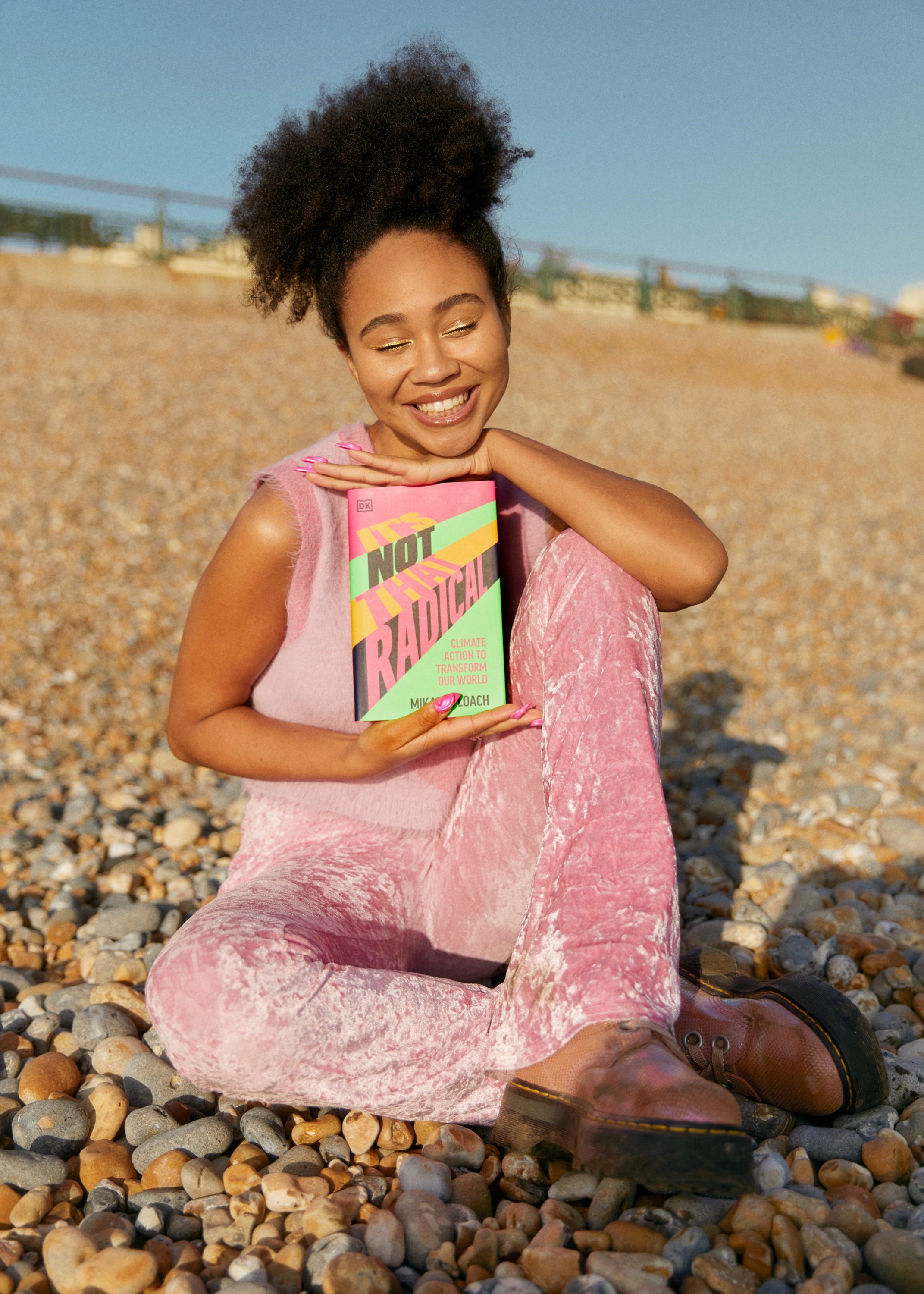
Named as one of the most influential women in the UK’s climate change movement, if you’ve not heard of Michaela Loach, you soon will.
Her book challenges the way climate action is presented and continues Naomi Klein’s message that our economic system is the problem. In fact, Klein is quoted on the cover:
“I have no doubt It's Not That Radical will become an indispensable toolkit for a new generation of activists" ― Naomi Klein, author of This Changes Everything
This is a radical book despite the title, challenging us to look at the wider issues in society and how climate justice can change the world for us all. “Tackling the climate crisis requires us to visit the roots of poverty, capitalist exploitation, police brutality and legal injustice.”
This makes it sound heavy going and yes, it’s not a fluffy book talking about re-using carrier bags, but it’s very readable. Take a look at the reviews and the dominant words are hope and inspiration. This book aims to rouse readers into taking real climate action.
NINE: You Can't Make Money from a Dead Planet by Mark Shayler
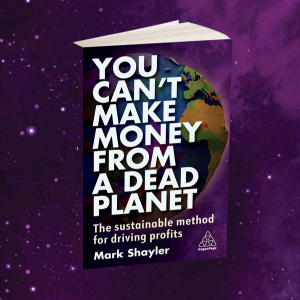
Mark Shayler has worked in sustainability since 1990 and during that time he’s advised some of the world’s biggest brands. You Can’t Make Money From a Dead Planet is a book for businesses large and small, who want to become more sustainable. And the good news is, you can do this while growing your business and being profitable. He aims to help you “develop a business and a team that are aligned with social and environmental good, and still make a profit.”
It covers areas such as the circular economy, B-Corps and net-zero and provides insights as well as practical tools. He includes stories of businesses who have succeeded in combining sustainability excellence with business success – definitely a book we’ll be recommending to our clients.
“This brilliantly accessible book shows how every workplace can make a difference for the planet, and still be business winners." ― Hugh Fearnley-Whittingstall, founder of River Cottage and environmental campaigner”
TEN: The Lorax by Dr Suess
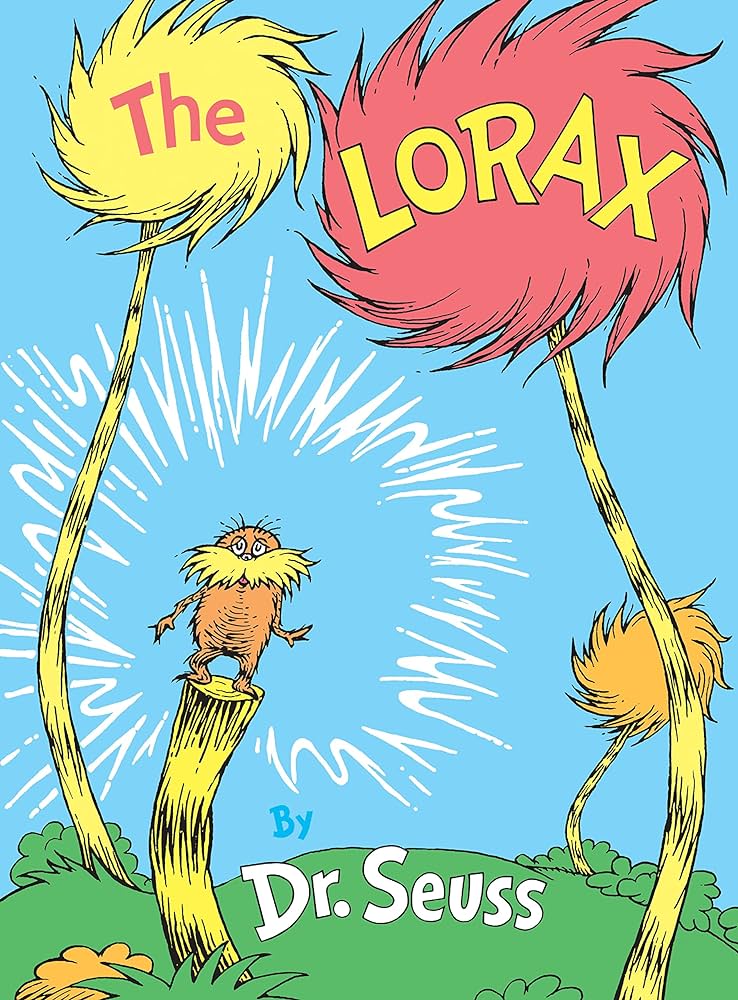
The OG [use original if you think more appropriate for your audience] eco-warrior - the story of the Lorax first came out in the seventies and was banned in a California school due to it’s anti-logging message (one of the main industries in the area). The Lorax is a Dr Suess character that ‘speaks for the trees’ and this is a story about the impact capitalism can have on the natural environment. It’s a fabulous way to start a conversation with little kids about caring for the environment. Aimed at age 4-8, get your mini environmentalist engaged with Earth Day and the messages around caring for the planet.
So that’s our choice of climate change and eco books for Earth Day. We’d love to hear your views on any you’ve read, or your suggestions for the ones we should add.


